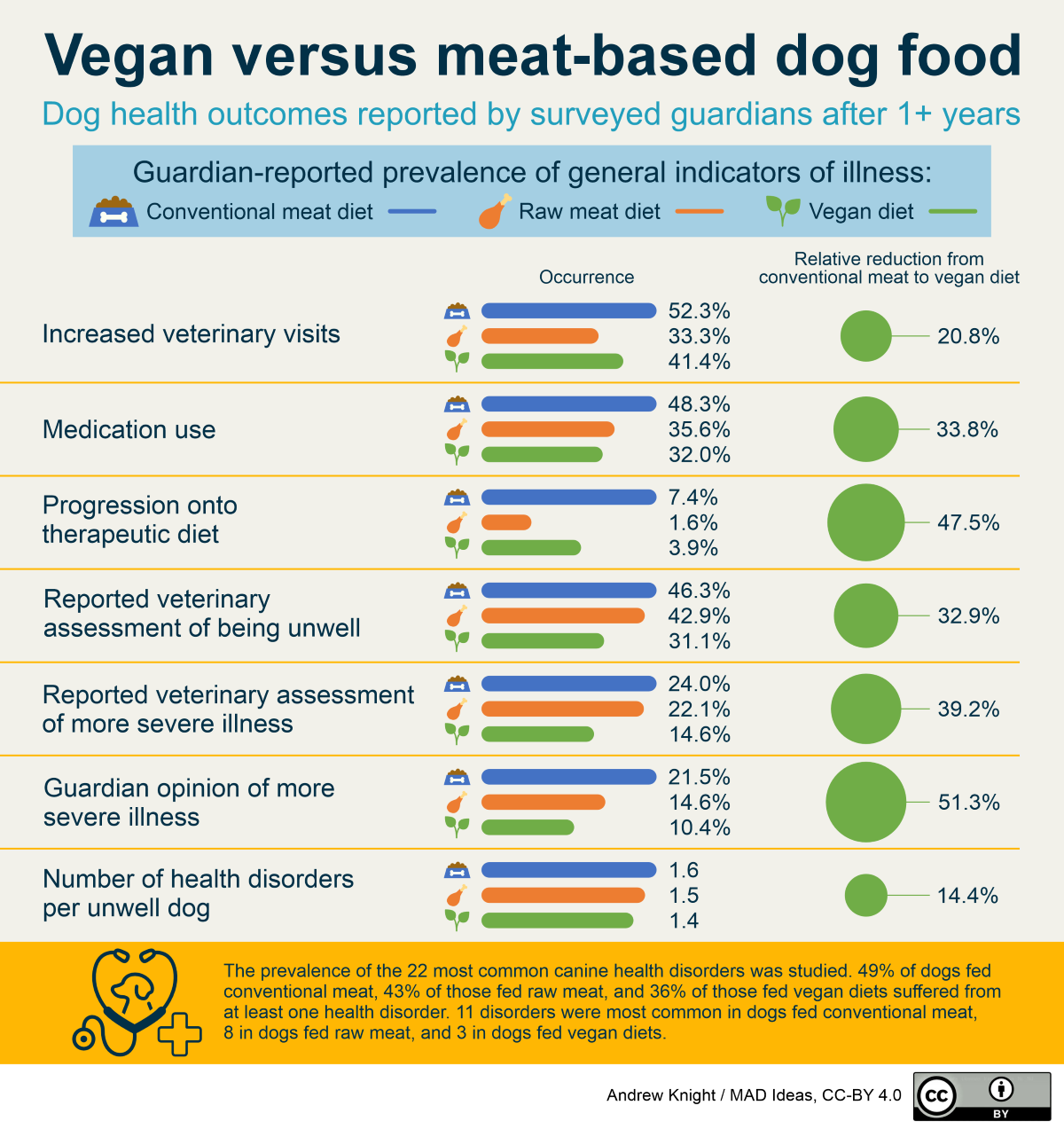
A new study by academics from the University of Winchester suggests that dogs can be healthier on a vegan diet than the traditional meat-based one.
Andrew Knight, a qualified vet and Visiting Lecturer in Animal Welfare, has co-authored the study with Hazel Brown, Associate Dean of the University’s Faculty of Health and Wellbeing and Alexander Bauer of Ludwig Maximilian University of Munich.
Pet food consumes at least 9 per cent of the world’s livestock, rising to 20 per cent in nations such as the USA with high pet ownership.
A previous study by Professor Knight showed the environmental benefits of vegan pet diets were significant. Most of these related to dog food - but can dogs be healthy without consuming meat?
Dogs are biologically omnivores, and many companies now produce vegan dog food using plant, mineral and synthetic ingredients to supply all necessary nutrients. To date 10 scientific studies have demonstrated good health outcomes in dogs fed vegan or vegetarian diets.
The British Veterinary Association (BVA) now says that plant-based diets for dogs can be nutritionally sound but their current policy warns “….owners should be aware of the difficulties in balancing these diets for nutritional needs, the lack of robust long-term data on their safety, and should monitor their dog’s health for long-term impacts.”
Yet no studies had calculated the size of the health benefits that might occur for average dogs, after controlling for age, sex, neutering status, breed size and exercise level – all factors that can affect dog health.
Professor Knight and his two colleagues have now published the first study to control for all of these factors.

After analysing health outcomes for 2,536 dogs, including 336 fed a vegan diet for at least one year, they found decreases in the occurrences of seven general indicators of illness.
Dogs fed vegan diets were less likely to need medication, medical diets or unusually high numbers of veterinary visits.
Vegan diet dogs were more likely to be assessed as healthy by dog owners and their vet, had lower rates of illness, and fewer cases of health disorders when they were unwell.
Reductions ranged from 14 – 51 per cent for average dogs, compared to dogs fed conventional meat-based diets.
Professor Knight asserts all of these differences were statistically significant, meaning they almost certainly reflected true differences rather than random variation.
Additionally, the odds of suffering from six specific health disorders fell by between 50 and 61% compared to dogs fed conventional meat.
These included some of the most common health disorders in dogs: problems with weight, ears, and the musculoskeletal and gastrointestinal system – which can cause conditions such as lameness and diarrhoea.
Among the 22 most common health disorders found in a 2022 study of the same dogs, 11 were most common in dogs fed conventional meat, eight in dogs fed raw meat, and three most common in dogs fed vegan diets. Almost half (49%) of dogs fed conventional meat were unwell, compared to 43% fed raw meat, and 36% fed vegan diets.
Prof Knight said: “Dogs fed vegan diets clearly had the best health outcomes in this very large-scale study, and these results are consistent with prior studies in this field.
“Nutritionally-sound vegan diets offer extremely large environmental benefits, so this is very good news for dog owners who want to protect the environment whilst also maximising their dogs’ health. However, care should always be taken to ensure diets are nutritionally-sound, by checking package labelling and purchasing from reputable pet food companies.”
Hazel Brown said: “I am not a dog owner but if I were this research would make me seriously consider a vegan diet for the health of my pet. Certainly, the statistics seem to disprove the established preconceptions that meat is the best food for dogs.”
Back to media centre